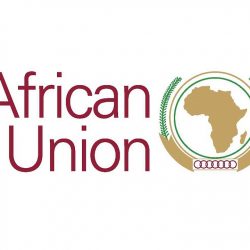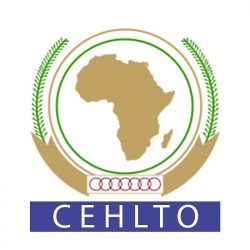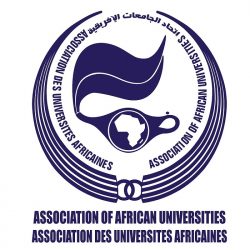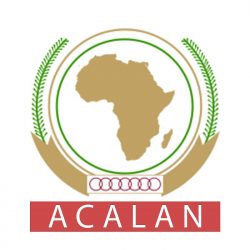EAP History
INTRODUCTION
The concept of having authentic history of Africa and African life documented in an organised form as in Encyclopaedia Africana may have been considered by many from all over the world. However, the people who remain instrumental in formulating a strategy to give practical interpretation to the long-held ideal of documenting the authentic history of Africa and African life in an organized form as in Encyclopaedia Africana were the late Osagyefo Dr. Kwame Nkrumah, first President of the Republic of Ghana and Dr. W.E.B Du Bois, the first Director of the EAP.
The ultimate goal of the Project in the words of the founding fathers is “to prepare and publish an Encyclopaedia not on the vague subject of race, but on the peoples inhabiting the continent of Africa…………..as a scientific production and not a matter of propaganda”. Articles for the Encyclopaedia are to be written mainly from the African point of view and by people who know and understand the history and culture of Africans. (Dr. W.E.B. Du Bois, 1962).
To co-ordinate the activities of the EAP, a Secretariat was established in Accra, Ghana in 1962, under the auspices of the then Ghana Academy of Learning. The Secretariat has since been hosted by the Government of Ghana as an agency under the Ministry of Education. At the inception of the Project, a Pan African Standing Committee consisting of a member each from participating African countries was constituted. Membership to the Project opened to all African states.
PROJECT EVOLUTION
In keeping up with the objective of making the Project a true Pan African undertaking, the Government of Ghana organized a Pan African Conference on the Encyclopaedia Africana Project at the University of Ghana in September 1964 during which the Project was formally launched by Osagyefo Dr. Kwame Nkrumah with Dr. WEB DuBois as its first Director. The conference attracted as many as 150 distinguished African scholars from 22 African countries.
Following the launch of the Project, an All-African Editorial Board was constituted. The composition of the Board was planned with the objective of its being broadly a representative of the highest African scholars in all areas of African life. Their prime mandate however was to determine the general policy direction of the Project for a given period. The Director of the EAP Secretariat together with a team of Editorial staff manages the day-to-day affairs of the Project including organizing the local and international meetings of the Project.
The work of the EAP Secretariat was decentralized through the establishments of National Co-operating Committees (NCCs) in all Member-States. Their core mandate is to enlist assistance of scholars in African universities and African Research Centres to contribute to the Encyclopaedia Africana. By 1975, 18 independent African States were actively engaged in the activities of the Secretariat. Countries such as Benin, Egypt, Ethiopia, Ivory Coast, Liberia, Madagascar, Niger, Nigeria, Zambia, Zimbabwe, Sierra Leone, Sudan, Tanzania, Uganda and Democratic Republic of Congo had National Co-operating Committees formed and were actively engaged in working for the Project. The Comoro Islands, Cameroon, Libya, Malawi and Togo had appointed Chairmen while steps were being taken to form their National Co-operating Committee.
PUBLISHED CONTENT
The EAP Secretariat was granted an Observer Status by the erstwhile Organisation of African Unity (OAU) in 1975 and this made it possible for the EAP Secretariat to receive upon request annual subventions from the OAU Secretariat but it ceased when the august body began facing severe financial challenges of its own in the early 1980’s.
Within this first phase of operation however, the EAP Secretariat successfully published three (3) volumes under the title “Dictionary of African Biography”. These volumes chronicled personalities of historical significance in eight (8) African countries namely Ghana, Ethiopia, Sierra Leone, Democratic Republic of Congo, South Africa, Botswana, Lesotho and Swaziland.
THE PAST & PRESENT ROLE OF OAU/AFRICAN UNION
The history of the Project as an inter-African initiative followed the EAP’s endorsement and Resolution at the 1965 Summit of Heads of State and Government of the Organisation of African Unity (OAU) now the African Union (AU) held in Accra October, 1965 to the effect that, the August body;
- Recognizes the existence of an all-African Editorial Board of the Encyclopaedia Africana and the establishment in many African countries the National Co-operating Committees.
- Recommends to Member States of the O.A.U to assist the Editorial Board in all possible ways to facilitate the activities of the Secretariat.
The OAU subsequently gave its blessings to the work plan of the EAP Secretariat and in 1975 granted the EAP Secretariat an Observer Status, (CM/Res. 417 (XXIV) which made it possible for the EAP Secretariat to apply for funding support for its core activities directly from the coffers of the OAU. Not long after, the OAU began facing acute financial challenges (i.e.1980s) as majority of its member states reneged on their country obligations to the OAU. This stalled the support and assistance the OAU was providing the EAP Secretariat.
In 2014, Government of Ghana revived EAP’s relationship with the African Union when it submitted the EAP at the 22nd Ordinary Session of Heads of State and Government Summit held in Addis Ababa, Ethiopia January 2014 as a Pan Africanist Movements legacy project that merit revitalization to help drive the AU Agenda 2063 vision of building an Africa with a strong cultural identity, common heritage, values and ethics (Assembly/AUD/Dec.490-516 (XXII). The proposal by the Government of Ghana was overwhelmingly endorsed and the EAP was declared as one of the key continental milestones to be realized under the First-10 Year Implementation Plan of the AU Agenda 2063.
Subsequently, the African Union Commission acting through its Citizens and Diaspora Directorate (CIDO) and in partnership with the Government of Ghana conveyed a number of technical workshops within the framework of the EAP to develop roadmaps and technical frameworks toward revitalizing the implementation of the EAP. The technical workshops brought together technocrats from the African Union Commission, Senior Officials from the Government of Ghana, scholars and leaders from the African Diaspora as well as academics from various scientific institutions including the Association of African universities, the Pan African Writers Association and the University of Ghana.
In 2019, upon submission of report on progress of work on the EAP, detailing experts’ recommendations to guide the next phase of project revitalization at the 32nd Ordinary Session of Heads of State and Government summit of the African Union held in Addis Ababa, Ethiopia, the august body declared to make the EAP a flagship project of the African Union (Assembly/AU/Dec.713-748 (XXXII). The new designation of the EAP is expected to rally support for both financial and political support for the project across all AU Member States and at all the three (3) levels of the African Union operational frameworks.
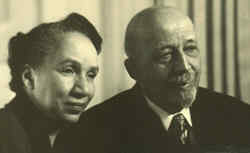
Mrs. Shirley Du Bois with husband, W.E.B. Du Bois
[Dr. Du Bois’ 2nd marriage], 1950
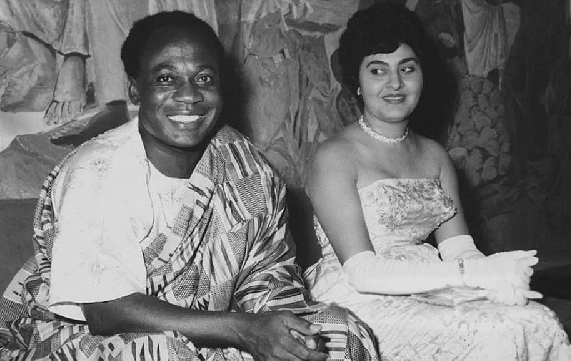
Kwame Nkrumah with wife Fathia Nkrumah
The legacy of the Encyclopaedia Africana Project, dates back to 1960, in Ghana, West Africa, when W.E.B. Du Bois witnessed the inauguration of the independent Republic.
At that time, First President Osagyefo Dr. Kwame Nkrumah, asked Dr. Du Bois if he would plan an Encyclopaedia Africana. Dr. Du Bois consented to do this and to consult personally and by letter a number of persons who might be interested in this project.
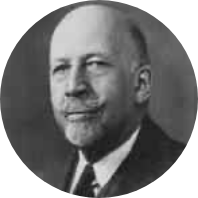
Encyclopaedia Africana Project History Archives
Articles written by various scholars and advisors of the Encyclopaedia Africana Project, in chronological order.
Articles written by the Director of the Secretariat of the Encyclopaedia Africana Project: status reports, statements, press releases, responses to social commentary, etc., in chronological order.
Articles written by members of the Encyclopaedia Africana Project Editorial Board, in chronological order.
Articles written by various scholars and advisors of the Encyclopaedia Africana Project, in chronological order.
Articles written by the Director of the Secretariat of the Encyclopaedia Africana Project: status reports, statements, press releases, responses to social commentary, etc., in chronological order.
Articles written by members of the Encyclopaedia Africana Project Editorial Board, in chronological order.
